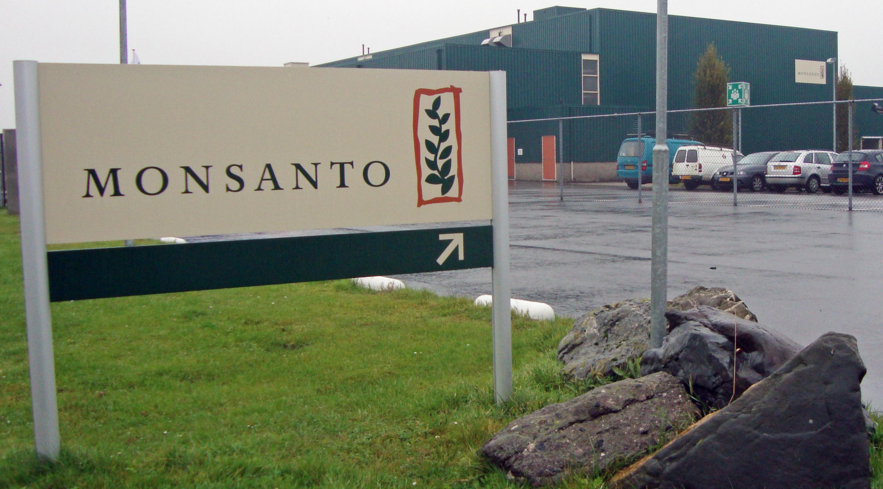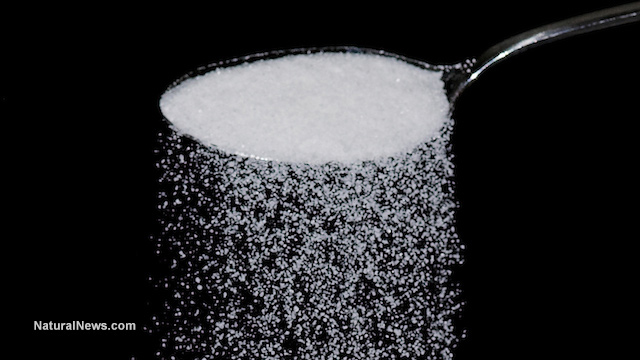Monsanto ordered to pay $857 million to 7 people exposed to toxic forever chemicals
12/27/2023 / By Laura Harris

Agrochemical giant Monsanto has been ordered to pay a staggering $857 million fine to five former students and two parent volunteers of Sky Valley Education Center in Monroe, Washington, for exposing them to polychlorinated biphenyls (PCBs).
PCBs, banned from production in 1979 due to their toxicity, were commonly used in construction materials such as caulking and light fixtures from the 1950s to the 1970s. The slow breakdown of PCBs, often referred to as “forever chemicals,” has resulted in lingering environmental exposure, particularly in schools, of which approximately 55,000 were constructed during the peak decades of PCB production. In other words, PCBs are still present in the environment even after being banned for decades.
According to the complainants, their exposure to Monsanto’s PCBs coming from fluorescent light fixtures at the Sky Valley Education Center, located north of Seattle, caused a range of health problems, including brain damage and autoimmune disorders.
Keri C. Hornbuckle, a professor and environmental engineer at the University of Iowa and an expert witness for the complainants, backed their claims. He emphasized the lasting impact of PCBs on schools, given that “schools were built to last and they’re not regularly modeled; those materials still reside in the caulking around the windows and between the masonry and structural joints of the building.”
As a result, the jury awarded a total of $73 million in compensation and $784 million in punitive damages to the complainants. Henry Jones, an attorney for the plaintiffs, told CBS News: “No one who heard this evidence would ever change places with any of these people in exchange for all the money the jury awarded.”
However, Monsanto strongly disagreed with the verdict and announced their plans to appeal.
“We disagree with the verdict and will pursue post-trial motions and appeals to get this verdict overturned and to reduce the constitutionally excessive damages awarded,” said a Monsanto spokesperson. “The objective evidence in this case, including blood, air and other tests, demonstrates that plaintiffs were not exposed to unsafe levels of PCBs, and PCBs could not have caused their alleged injuries.”
Monsanto faces mounting legal battles while losing billions of dollars due to toxic products
Monsanto grapples with an increasing number of lawsuits over its products across the United States.
Last month, Monsanto was ordered to pay $332 million to an individual who claimed that the company’s weed-killing chemical, Roundup, was responsible for his cancer. This marked another blow in a series of lawsuits against Monsanto, with thousands of individuals asserting that Roundup exposure caused severe health issues.
In Missouri, a jury directed Monsanto’s parent company Bayer to pay $1.56 billion to four people who got cancer from using Roundup. The jury found the company responsible for design defects, failure to warn about the chemical’s dangers and negligence. All four victims were diagnosed with non-Hodgkin lymphoma after using Roundup on their property.
Moreover, about 165,000 claims have been filed against Monsanto for personal injuries related to Roundup, which contains glyphosate. Bayer settled most of these cases for around $11 billion. However, regulatory filings indicate that about 50,000 claims are still awaiting resolution.
Similarly, in June, the state of Vermont also filed a lawsuit against agrochemical giant Monsanto over its production and sale of toxic chemicals, despite knowing that they were damaging to human health and the environment. (Related: Vermont sues Monsanto over toxic PCB contamination in schools.)
According to the lawsuit, Monsanto was aware that the formulations were very harmful, could easily seep into the environment and would cause widespread contamination and health issues, which have now become a reality.
“Monsanto manufactured, marketed, sold, and distributed PCBs while knowing that its products would cause significant, long-term damage in Vermont,” said Vermont Attorney General Charity Clark.
Furthermore, the Green Mountain State has been spending millions of dollars to check all its schools for PCB contamination since high levels of the toxin were found at Burlington High School and other schools. As a result, the Burlington School District also sued Monsanto in a separate case last year, with more schools intending to follow suit.
Visit Chemicals.news for more articles like this.
Watch the video below to learn more about 3M’s $10 million fine to settle a lawsuit over water contamination due to PFAS.
This video is from The Talking Hedge channel on Brighteon.com.
More related stories:
Switchgrass naturally removes toxic PCB pollution from soil.
Forever chemicals: Study shows exposure to PFAS linked to post-diet weight gain.
USGS: At least 45% of TAP WATER across the U.S. is contaminated with FOREVER CHEMICALS.
Study: “Forever chemicals” in popular cooking products increase risk of liver cancer.
Forever chemicals pose greater cancer risk to women than men, study finds.
Sources include:
Submit a correction >>
Tagged Under:
chemicals, environment, forever chemicals, Monsanto, PCBs, polychlorinated biphenyls, Roundup, Sky Valley Education Center, toxic chemicals, Washington
This article may contain statements that reflect the opinion of the author
RECENT NEWS & ARTICLES
COPYRIGHT © 2017 FOOD SCIENCE NEWS




















